Fado, Petiscos and Saudade. The Best Way to Experience Lisbon
By Lorenzo VillaThere are few emotions like saudade. This Portuguese word indicates the nostalgia and melancholy of something that is no longer there but lives on in memories. But really, it is untranslatable. Yet any person has experienced it if they have walked the streets of Lisbon.
In recent years, Portugal’s capital has undergone a cultural and economic upheaval. From being considered one of Europe’s most desirable destinations for its affordability, in a few years – thanks to the deregulation and liberalisation of rentals and the wild advent of Airbnb – it has gone from being one of the wildest tourist destinations, with a consequent price hike across the board. In spite of this, part of Lisbon’s soul has remained intact, thanks to its millenary history and a strong consciousness-raising from its colonialist past that is driving resistance to gentrification.
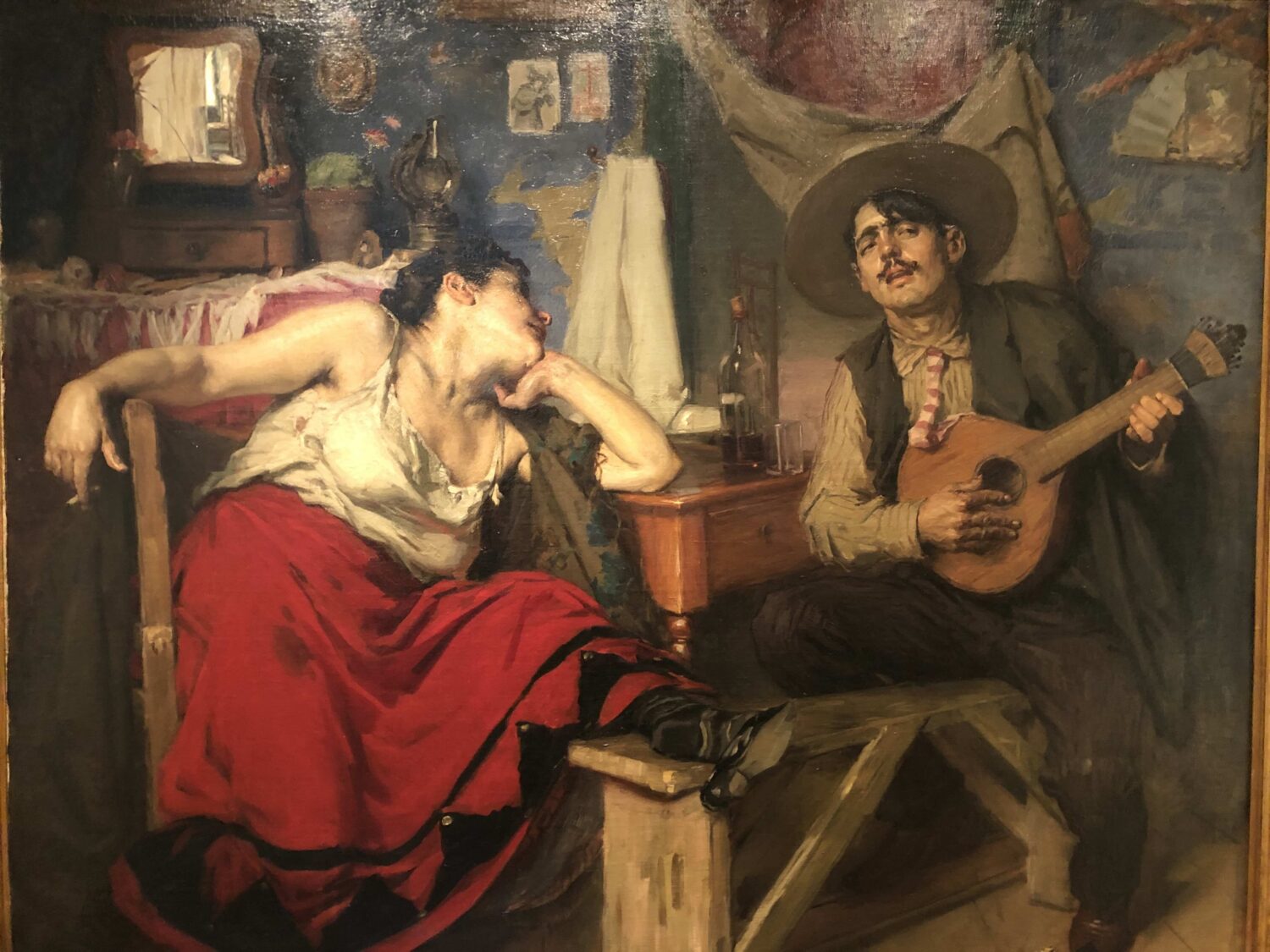
While it may be reductive, this phenomenon of resilience is intrinsically linked to fado, the World Heritage-tagged traditional Portuguese music. Fado is a song form that originated in the first half of the 19th century by the working classes singing about the pain of marginalisation, poverty and mourning. In fact, on an tempo of 2/4 or 4/8, the guitarra Portuguesa and the viola (classical guitar) accompany the fadista’s strongly evocative Alexandrian verses, which lament a disadvantaged condition in the memory of a better past or in the hope of a brighter future. Saudade in other words.
Fado and saudade are in turn strictly connected to traditional alfacinhas cuisine. The tascas, with their family management and relatively affordable prices, were the first stages for fadistas, who thus went from being poets and street singers to recognised and paid musicians. In these small taverns with their walls covered in azujelos, petiscos – a kind of tapas with strict ingredients – were served and green wine was drunk.
Unfortunately, as a great lover of music and food, I have to report that most of the tascas with fado nowadays have not withstood touristification, and have become in part – when they are not in full – tourist traps. (You pay a lot, you eat poorly, even if the fado is still amazing).
However, there are still tascas in the narrow alleys of Alfama or on the sloping streets of Chiado, which offer evenings with great food and fado.
This is a curated selection to get some saudade in Lisbon.
Tasca da Bela
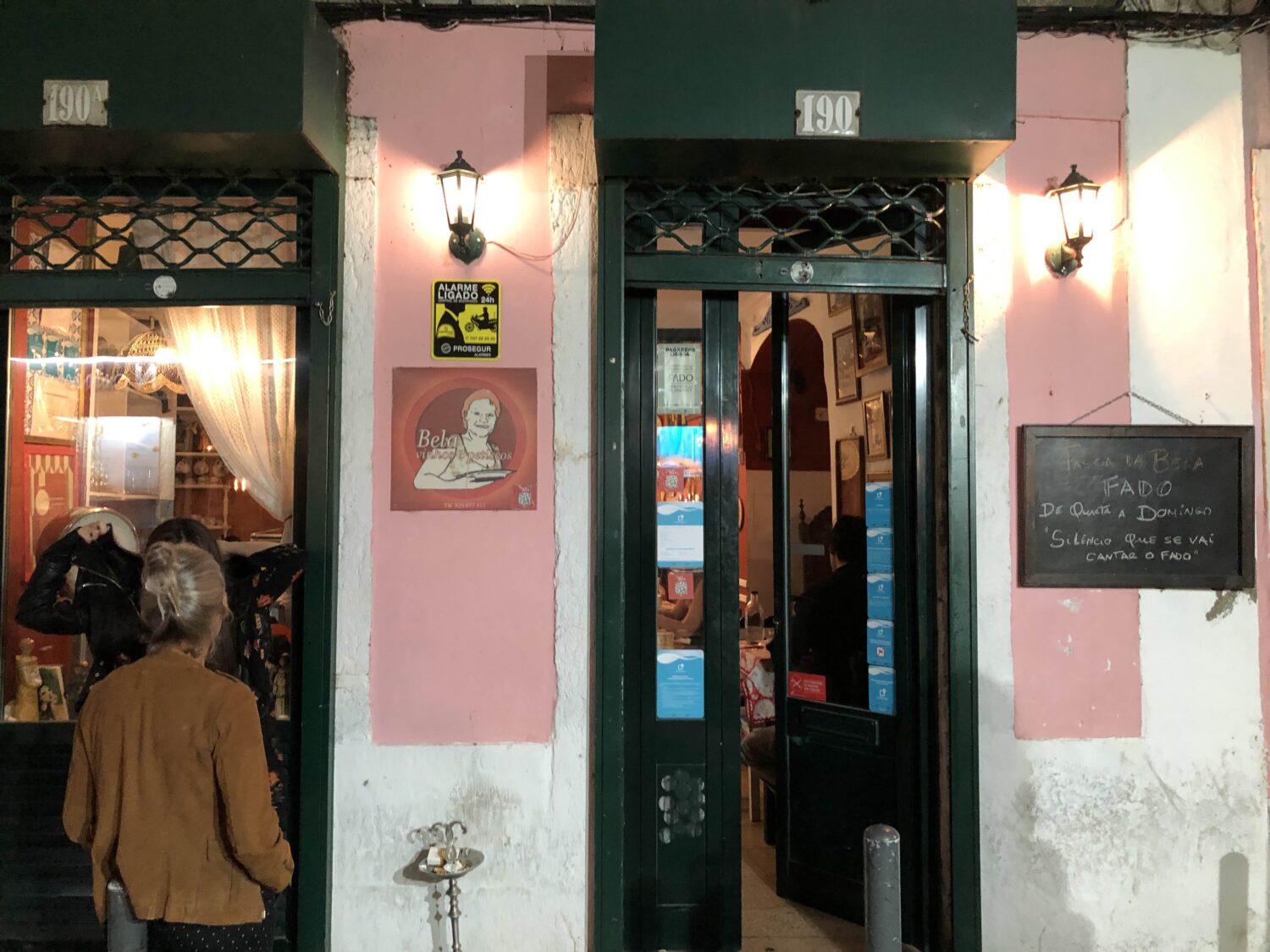
Located in the old Alfama district, Tasca da Bela offers typical Portuguese cuisine, with food of the day displayed at the counter such as pastel de bacalhau, caldo verde, salada de polvo (octopus salad), and shrimp rissole. During fado evenings, however, the menu becomes a petiscos tasting. It starts with an appetiser of the ubiquitous bacalhau (salt cod) – in this case served with tempura beans, an excellent combination – Azeitão cheese, and chorizo. Portions are plentiful: the classic bacalhau à braz served as the main course was delicious – and you can’t even finish the course before the lights go out and the fadistas start singing. The whole evening is punctuated by fado songs, course interrupted by song, before moving on to the next course. (I learnt the importance of silence: when the fado starts remember no eating, no drinking, no talking).
R. dos Remédios 190, Lisboa
Black Sheep, Holy Wine and Casas do Fado
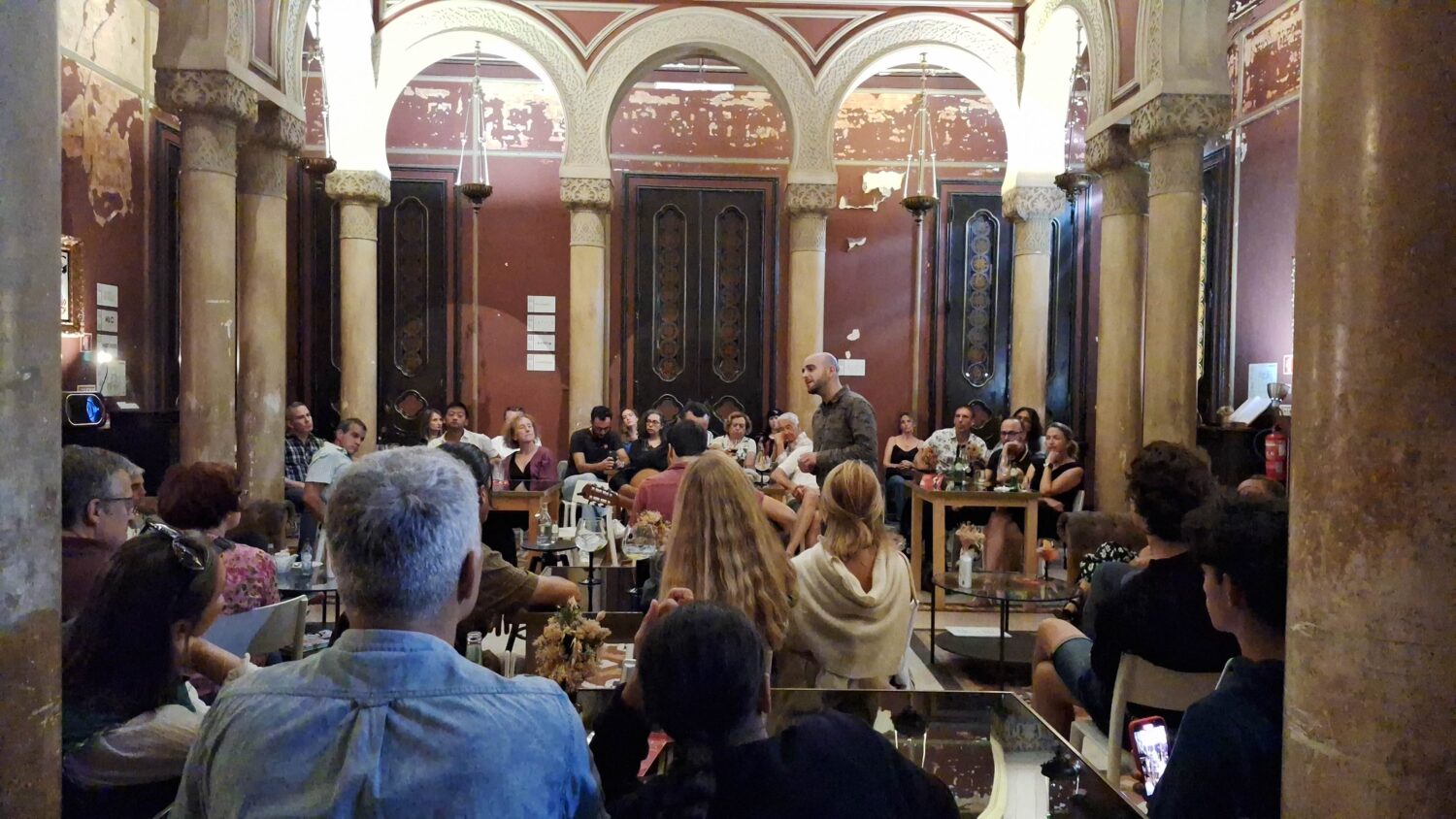
Let’s be clear, there is also another way to feel the saudade. Instead of risking financial drain in tourist tascas, seek out a show at the Casa do Fado Real Fado Concert, a temple for fadistas and enthusiasts. Concerts generally last an hour and are performed pre-dinner (7pm to 8pm). In Mercês district, you can choose from several places to have an aperitif before the concert. Black Sheep and Holy Wine are two wine bars that have become a reference point for natural wine lovers in recent years. Black Sheep offers a selection of both Portuguese and international wines – French wines are by far the stars of this section. Holy Wine, on the other hand, is specialised in Portuguese natural wines with a selection of Vinho Verdes from the far north to the Algarve in the south.
Real Fado Concert Praça das Flores 62, Lisboa
Black Sheep, Calçada da Estrela 15, Lisboa
Holy Wine, Praça do Príncipe Real 26, Lisboa
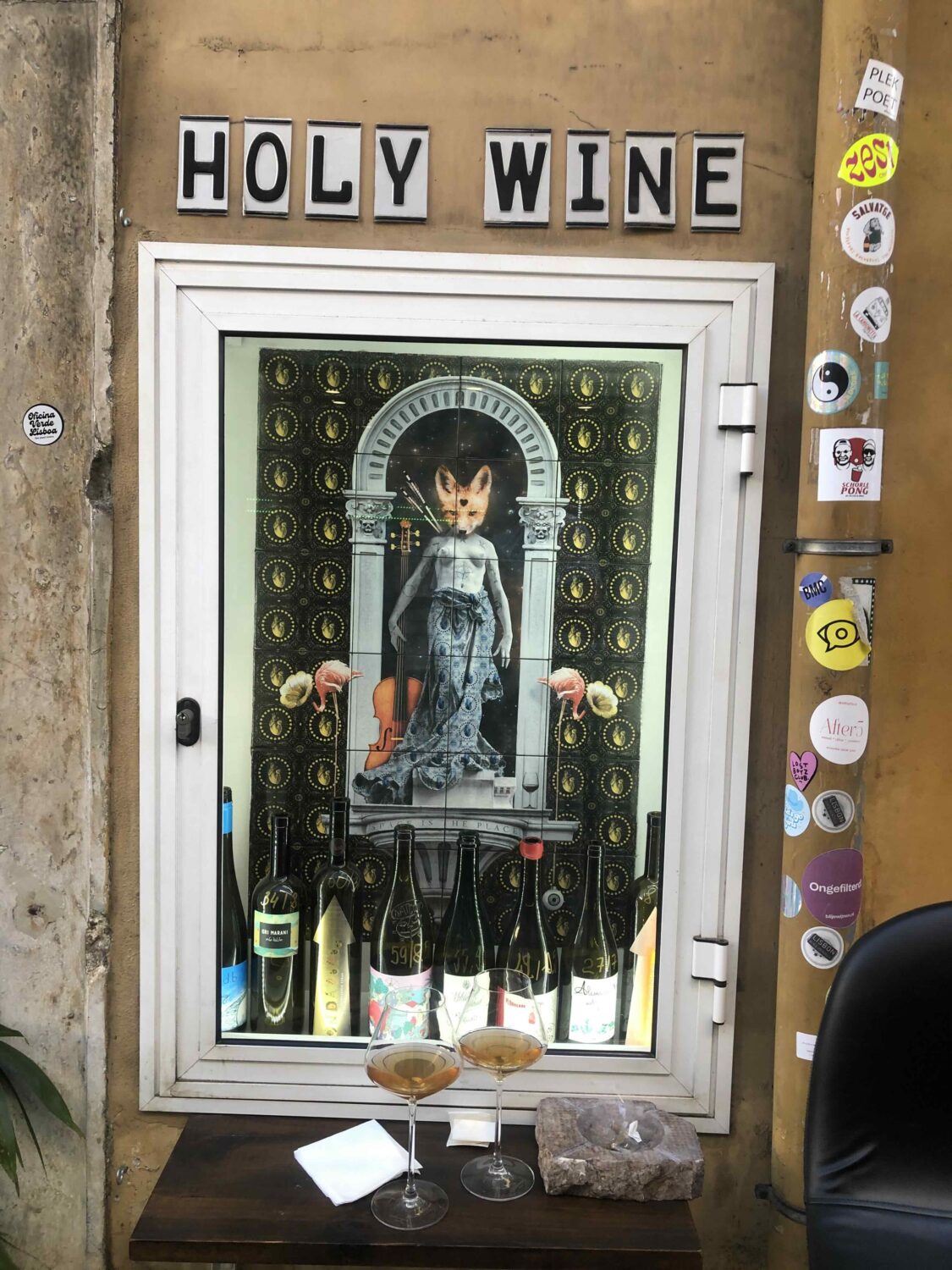
Tasca Zebras
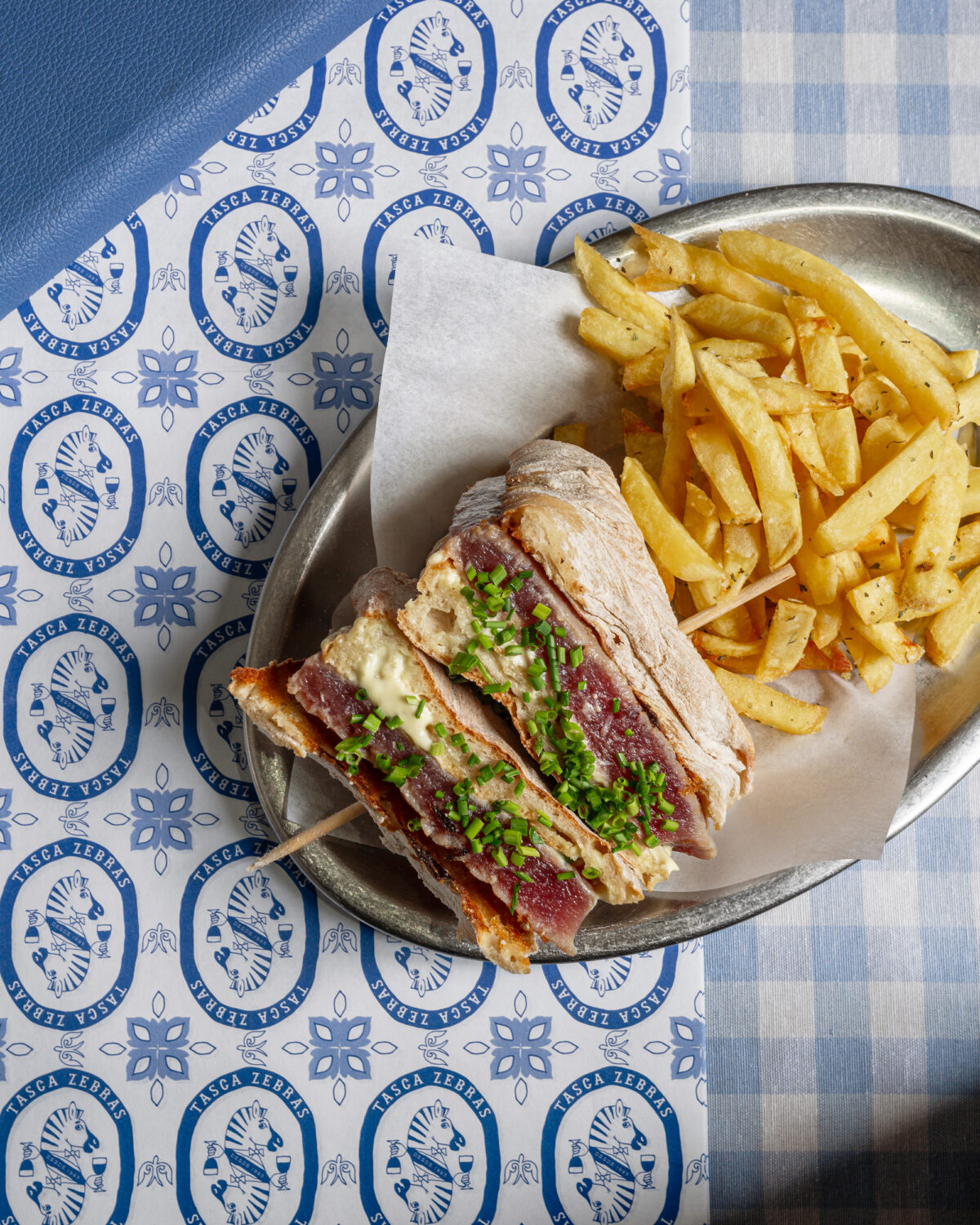
After the wine has mellowed you and the fado has consumed your soul, it is time for dinner. Tasca Zebras will not disappoint. Since 1983, this little tasca has been serving a traditional menu that in recent years has undergone a few reinterpretations. Both the meat and the vegetables – try the peixinhos da horta (fried tempura green beans) – are of the highest quality, but at Tasca Zebras you go for the fish. The freshness is unquestionable, but it is the way it is cooked that makes the difference. Bacalhau à brás, sardinhas assadas (grilled sardines), polvo “À Lagareiro” (grilled octopus), and the amêijoas (clams with garlic and coriander sauce) are just some of the delicious dishes from the long seafood menu. You cannot leave without trying the chocolate mousse, proudly called the “best in town”. (Yes, Lisbon has a thing for mousses). You will actually remember it.
Calçada do Combro 51, Lisboa
Tasca do Chico
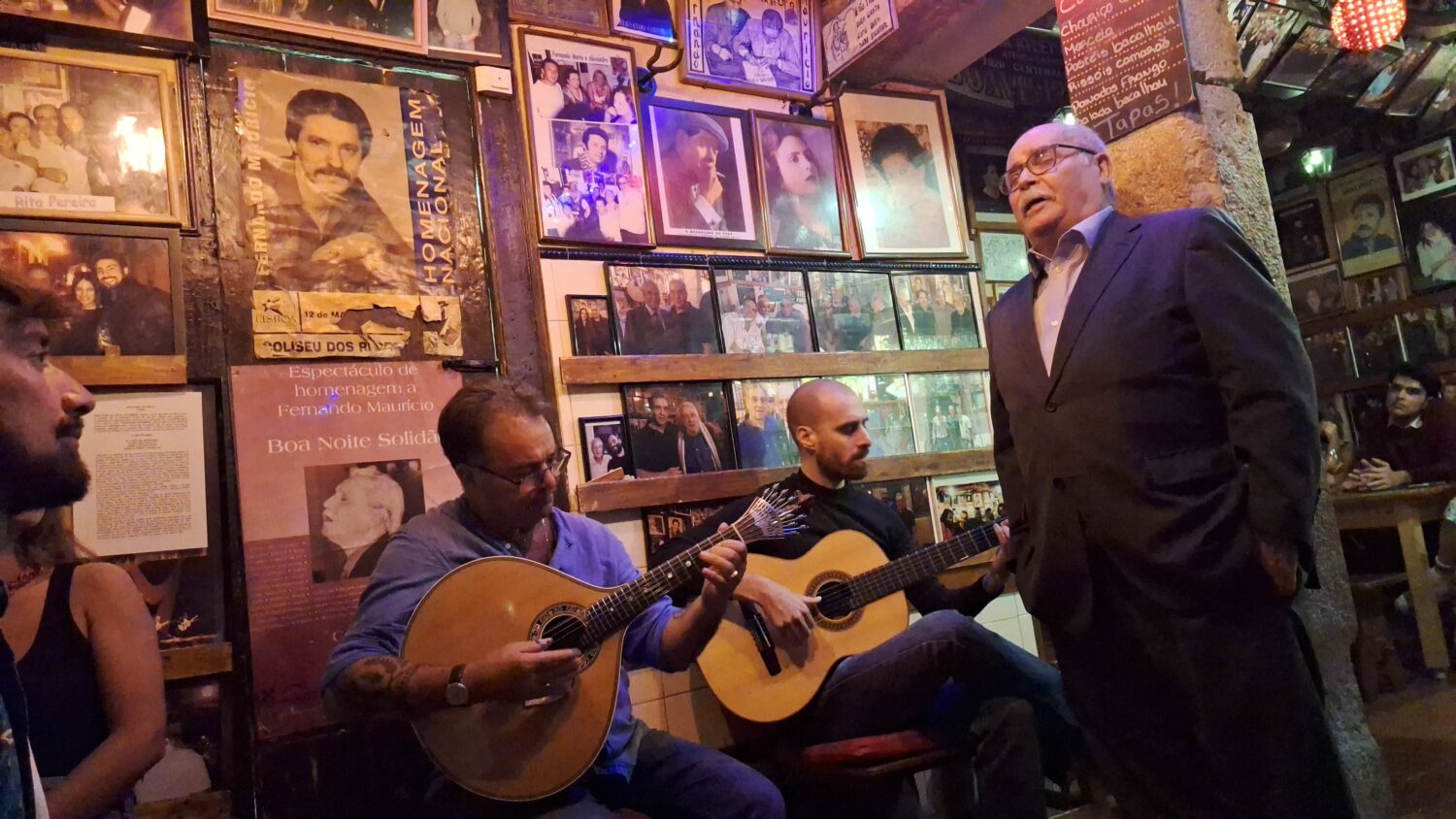
There is an Italian novel by Antonio Tabucchi that describes the life under Salazarian dictatorship of the protagonist Pereira, an old journalist with a moustache and always well dressed. When I saw João Carlos singing in the Tasca do Chico, I immediately thought of that novel, Sostiene Pereria (Maintains Pereira) and its main character. Seventy years old, his moustache as well trimmed as his suit, João Carlos tunes with the guitarists and entertains the audience sitting on the few tables available. The place is tiny and many patrons are elderly gentlemen from Chiado or Bairro Alto, lurking at the bar or at the shady tables. You can also dine at the Tasca do Chico, but the real experience is sharing petiscos – pasteis de bacalhau above all – and house wine on communal tables while listening in silence to João Carlos and the other singers, conversing on guitars.
R. do Diário de Notícias 39, Lisboa
Atira-te ao rio
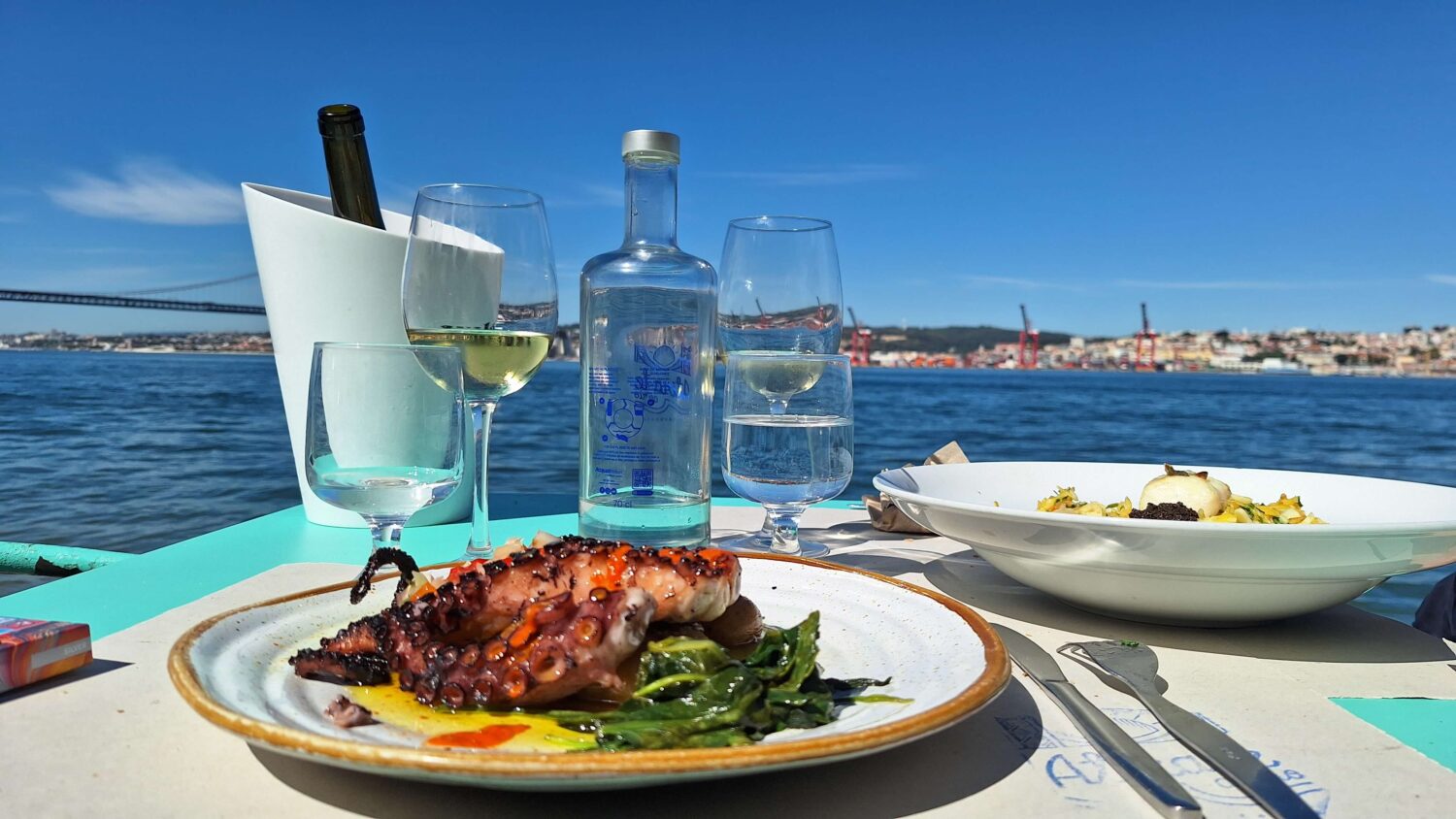
Now that you’ve had your fill of fado, cross the Tagus river by ferry and head to Almada. Here on the pier is Atira-te ao Rio, a perfect place for a sunny lunch. Definitely get the bacalhau à braz, creamy and crispy, plus a glass or a bottle of house vinho verde. Or go for the pescado of the day if you fancy something more elegant.
Stay there for hours: the view over Lisbon and the 25 April bridge will do the rest.
R. do Ginjal 69, Almada
Lorenzo Villa is a writer and editor based in Milan. He writes about lifestyle for Harper’s Bazaar Italia and collaborates with the literary magazine Galápagos. All photos, including the header image from Tasca Zebras, by Lorenzo Villa.